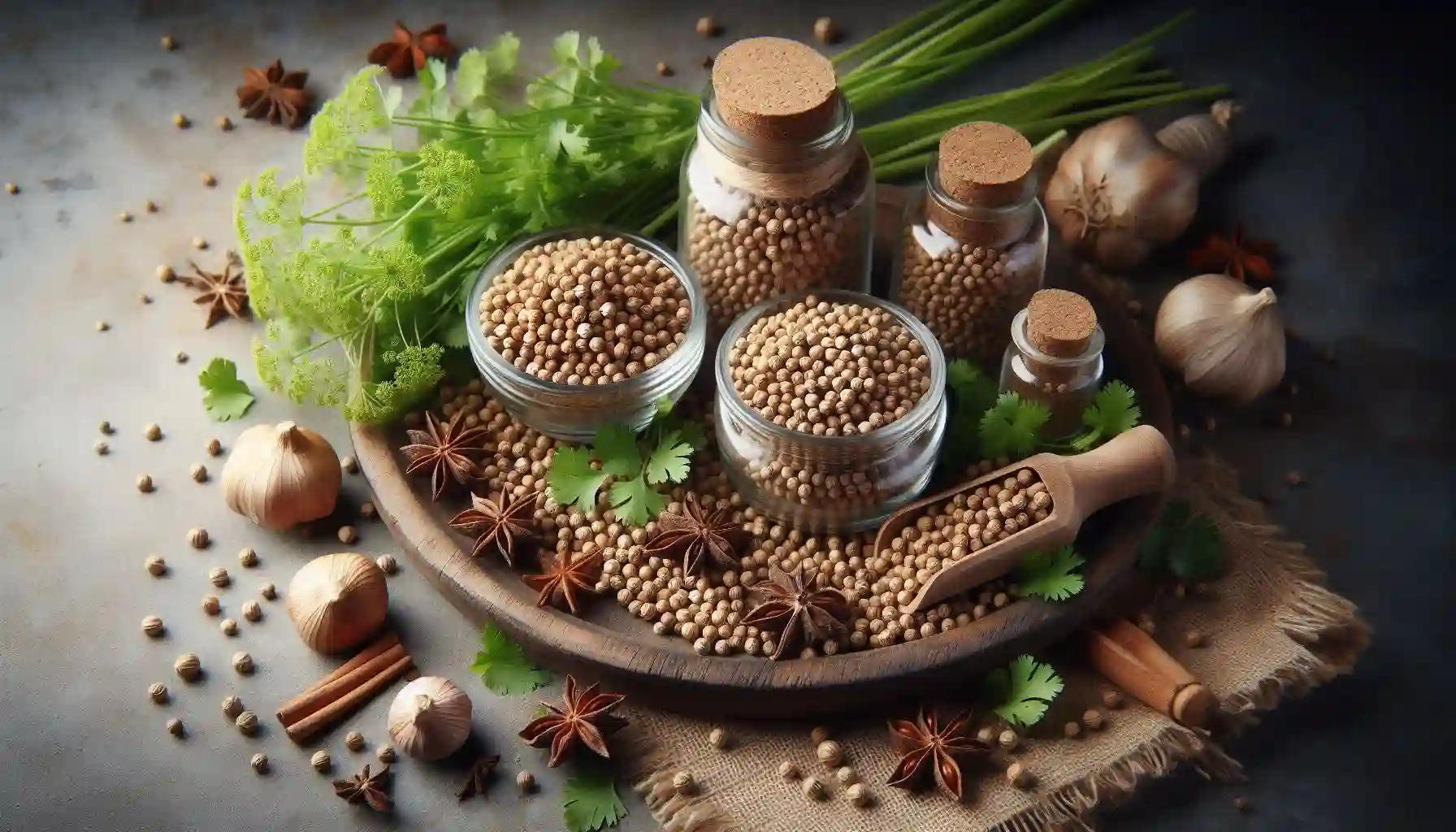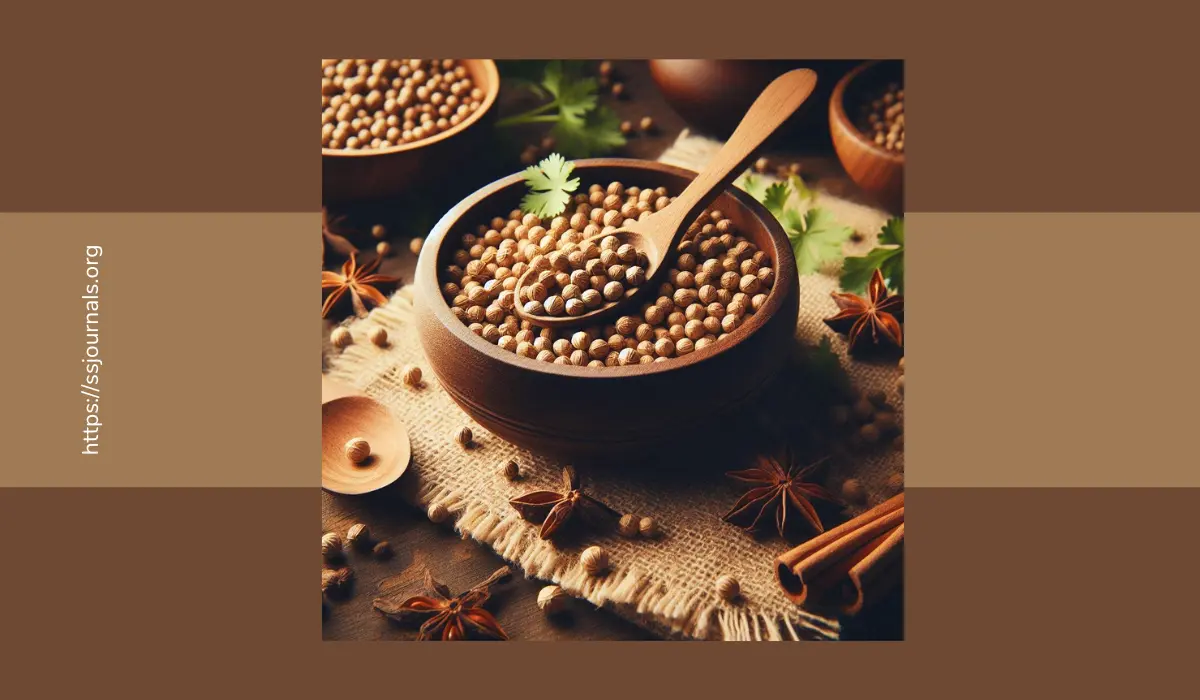Coriander seeds, the dried fruit of the Coriandrum sativum plant, have been used for centuries in cooking and traditional medicine. These tiny, round seeds are known for their distinctive flavor and aroma, which can be described as citrusy, nutty, and slightly sweet.
In this article, we will explore the various ways in which coriander seeds can support your overall health and well-being. From aiding digestion to promoting healthy blood sugar levels, coriander seeds have the potential to be a valuable addition to your diet.
We will also discuss the differences between coriander seeds and cilantro, their fresh leafy counterpart, and provide some alternative options for those who may not enjoy the taste of coriander seeds.
What is Coriander Seed?
Coriander seeds are the dried fruit of the coriandrum sativum plant, which is an annual herb belonging to the parsley family. These small, round seeds are harvested from the plant’s flowers and are known for their distinctive flavor and aroma.

Coriander seeds have a citrusy, nutty, and slightly sweet taste, which makes them a popular ingredient in various cuisines worldwide.
The seeds are typically yellowish-brown in color and have a ridged texture. Whole or ground, they find application in recipes based on your preference. Coriander seeds are commonly used in Indian, Middle Eastern, and Mexican dishes, adding depth and complexity to curries, stews, soups, and spice blends.
In addition to their culinary uses, coriander seeds have been used for centuries in traditional medicine to treat various ailments, such as digestive issues, respiratory problems, and skin conditions.
Today, modern research is exploring the potential health benefits of coriander seeds, including their antioxidant, anti-inflammatory, and blood sugar-regulating properties.
4 Benefits of Coriander Seeds
Coriander seeds offer a range of health benefits, including supporting digestive health, managing blood sugar levels, and providing antioxidant and anti-inflammatory properties.
They may also contribute to better heart health by helping to lower cholesterol levels and reduce the risk of heart disease. Now let’s get into detail on the various benefits provided one by one.
1. Digestive Health
One of the most well-known health benefits of coriander seeds is their ability to support digestive health. Coriander seeds contain essential oils that stimulate the production of digestive enzymes, aiding in the breakdown of food and promoting better nutrient absorption.
Additionally, coriander seeds have antispasmodic properties, which can help relieve digestive discomfort, bloating, and flatulence. Incorporating coriander seeds into your diet is easy. You can add them to curries, stews, and soups, or even brew a soothing coriander seed tea to enjoy after meals.
2. Blood Sugar Management
Recent studies have shown that coriander seeds may be beneficial for managing blood sugar levels. Coriander seeds contain compounds that can help improve insulin secretion and reduce insulin resistance, both of which are crucial factors in maintaining healthy blood sugar levels.
For those looking to manage their blood sugar naturally, adding coriander seeds to your diet may be a simple yet effective strategy. You can grind coriander seeds into a powder and add them to smoothies, yogurt, or baked goods for a subtle flavor boost and potential blood sugar benefits.
3. Antioxidant and Anti-inflammatory Properties
Coriander seeds are rich in antioxidants, which are compounds that help protect your cells from damage caused by harmful free radicals. Free radical damage has been linked to various chronic diseases, including heart disease, cancer, and premature aging.
In addition to their antioxidant content, coriander seeds also possess anti-inflammatory properties. Chronic inflammation is a key contributor to many health issues, and consuming foods with anti-inflammatory effects, such as coriander seeds, may help reduce your risk of developing these conditions.
4. Heart Health
The antioxidant and anti-inflammatory properties of coriander seeds may also contribute to better heart health. Some studies suggest that consuming coriander seeds can help lower cholesterol levels and reduce the risk of heart disease.
Furthermore, coriander seeds contain potassium, a mineral that plays a crucial role in regulating blood pressure. By incorporating coriander seeds into your diet, you may be supporting your heart health in multiple ways.
Cilantro vs. Coriander Seeds
While coriander seeds and cilantro come from the same plant (coriandrum sativum), they have distinct flavors and uses. Cilantro refers to the fresh, leafy greens of the plant, which are commonly used as a garnish or ingredient in salads, salsas, and other dishes.
Coriander seeds, on the other hand, are the dried fruit of the plant and have a completely different flavor profile. If you’re not a fan of cilantro, don’t worry – you may still enjoy the taste of coriander seeds in your favorite recipes.
Now, if you don’t have coriander seeds on hand or prefer a different flavor, there are several alternatives to coriander seeds you can use in your cooking. Cumin seeds, fennel seeds, and caraway seeds all have similar flavor profiles and can be used as substitutes in many recipes.
Keep in mind, however, that each of these spices has its own unique taste, so the final dish may have a slightly different flavor than if you had used coriander seeds.
Conclusion
In conclusion, coriander seeds are a versatile and nutritious ingredient that offers a wide range of health benefits. From supporting digestive health to promoting better blood sugar management and heart health, incorporating coriander seeds into your diet may be a simple way to support your overall well-being.
While coriander seeds and cilantro come from the same plant, they have distinct flavors and uses. If you’re not a fan of cilantro, you may still enjoy the taste of coriander seeds in your favorite dishes. And if you don’t have coriander seeds on hand, there are several alternatives, such as cumin seeds, fennel seeds, and caraway seeds, that you can use in your cooking.
When making dietary changes, pay attention to your body and seek advice from a healthcare professional if you have any concerns. However, for most people, adding coriander seeds to their diet is a safe and enjoyable way to support their health and explore new flavors in the kitchen.
So, the next time you’re whipping up a delicious meal, consider adding a sprinkle of coriander seeds for an extra boost of flavor and nutrition. Your taste buds and your body will thank you. And who knows – you may just discover a new favorite spice in the process.
Have you tried incorporating coriander seeds into your cooking? What are some of your favorite recipes that feature this flavorful and healthful spice?

